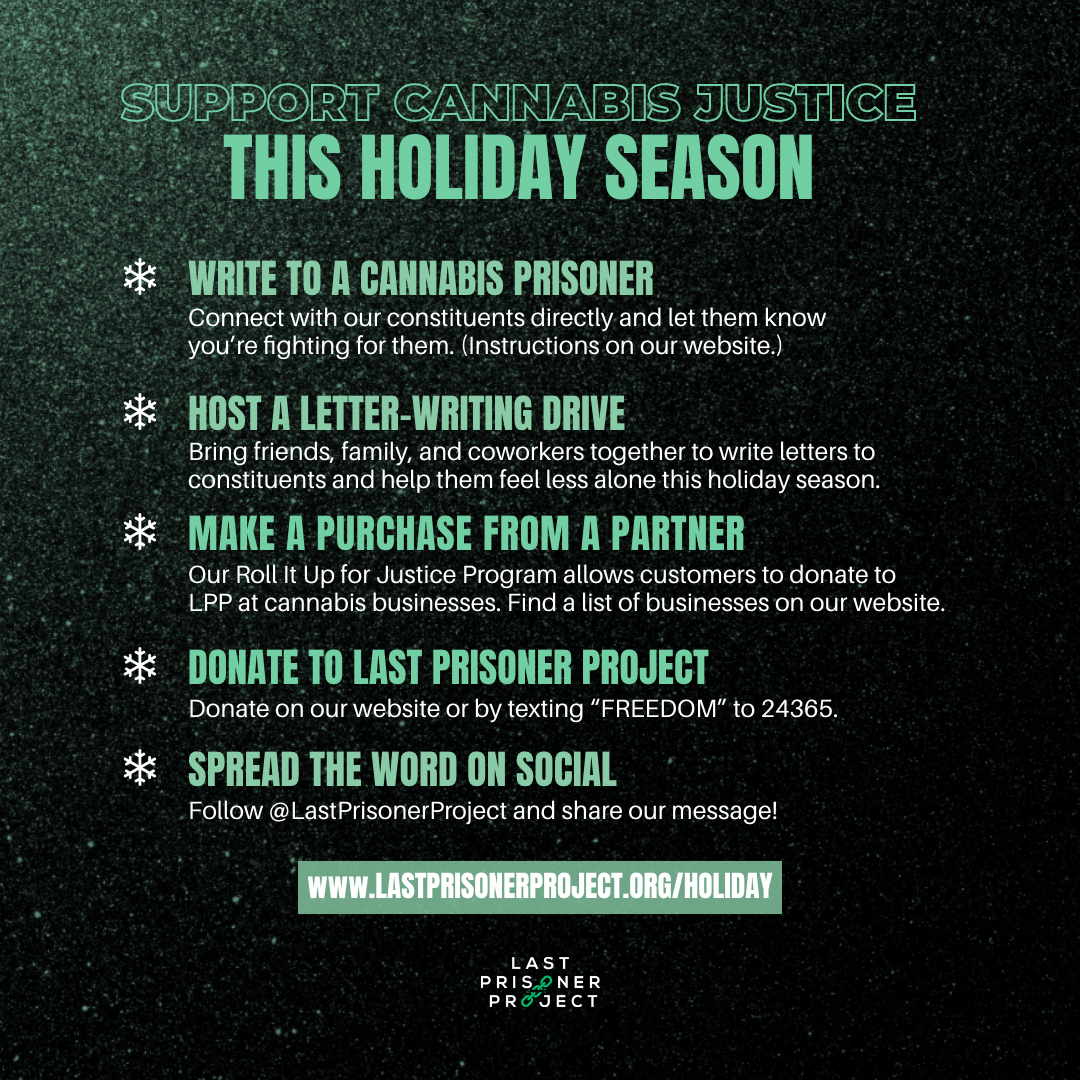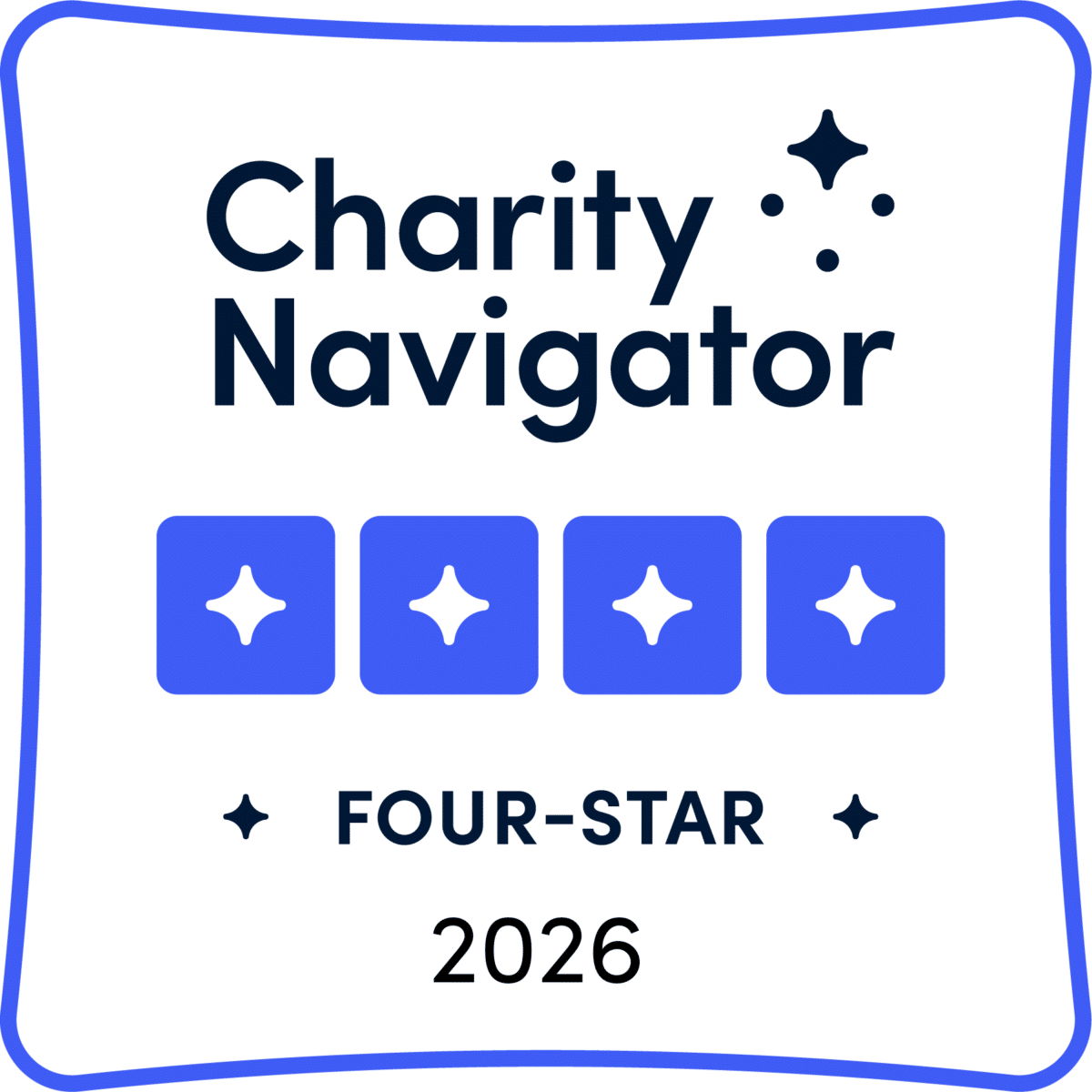9 Gift Ideas that Support Reuniting Families This Holiday Season
This holiday season, consider giving gifts with purpose. By choosing gifts that align with the mission of the Last Prisoner Project, you can make a significant impact on the lives of those affected by outdated cannabis laws. Here's a guide to thoughtful presents that not only spread holiday cheer, but also contribute to the Last Prisoner Project's mission of achieving reparative justice in the cannabis community.
“Free All Cannabis Prisoners” Last Prisoner Project Hoodie
Buy cannabis reform hoodies, t-shirts, hats and other merchandise that let you advocate for social justice and cannabis reform everywhere you go on out
LPP merch store. These items go directly to LPP’s funds to support our constituents and run our programs.
FashionKush "Cannabis Is Not A Crime" Line
Make a statement for social justice & cannabis reform with our Cannabis is Not a Crime collection... because no one should be in jail for weed. $1 from each purchase of our Cannabis is Not a Crime collection will be donated to our friends at the last prisoner project in support of their efforts to redress the harms caused by cannabis prohibition through Last Prisoner Project's Constituent Support Fund.
“How a Plant Became Illegal” T-Shirt
As millions walk into their local dispensaries every day to buy cannabis, there are tens of thousands incarcerated for doing the very same thing. Last Prisoner Project’s collaboration with For Everyone Collective aims to raise awareness for those impacted by cannabis prohibition and shed light on this injustice. The shirts were designed and printed by formerly incarcerated people and all profits from this collection will go towards LPP’s Constituent Support Fund to aid those currently incarcerated for cannabis offenses.
Purchase Cannabis from Justice Partners
Our Roll It Up For Justice Program is a nationwide campaign encouraging cannabis businesses to give customers the opportunity to donate to Last Prisoner Project at check out. Small change can make a big impact, and every cent raised through the program gets us closer to the day when every last cannabis prisoner is set free. No dispensary around you currently participating? Encourage your budtender to check it out. And as always, make sure to buy weed from the people that have been traditionally criminalized the most including Black, Latine, LGBTQ+, and women legacy operators.
The Judge's Water™ is a treasure for any true vodka lover, and the bottle is every stoner's
dream… But for us, this project is more than just a cool concept. With over half a century advocating for the green, and a couple of mugshots to show for it, Cheech and Chong have seen firsthand the sting of outdated drug laws. Millions of Americans are locked up in states where cannabis is legal for non-violent drug offenses. All because of the backwards drug laws we've had in this country for decades. That just doesn’t sit right with us, man. It's a harsh reality we want to help change. That’s why a portion of all proceeds from The Judge’s Water™ are going to support The Last Prisoner Project’s mission to ensure that every last cannabis prisoner is released, & to help reintegrate them back into society.
As part of our ongoing partnership with Last Prisoner Project, we’ve teamed up to release a limited edition spoon. This glossy black hand pipe features the same high-capacity bowl and inverted ash-catching mouthpiece as our Classic Spoon. It’s also etched with both the GRAV and LPP emblems. Pass it around and get the conversation started. 100% of proceeds will be donated to the Last Prisoner Project.
CHNGE.com Cannabis Equity Clothing
Nobody Should be in Prison for Weed! CHNGE.com has created this line of cannabis equity clothing in support of The Last Prisoner Project and Marijuana Matters, two non-profits focused on cannabis criminal justice reform and economic opportunity in regulated cannabis markets for those disadvantaged by marijuana’s criminalization. Shop their tees, crop tops, and longsleeves here.
Looking for a no-cost option to encourage your friends and family members to help support the fight for cannabis justice? Host a holiday letter-writing drive! No matter how big or small, even a single message of hope can make the day of someone behind bars during the holidays. Send a letter or host a drive today.
Make a Donation to Last Prisoner Project
If your stoner friends already have every cool accessory on the market, consider making a direct donation in their name to the Last Prisoner Project, to support our work to free people incarcerated for cannabis offenses.







